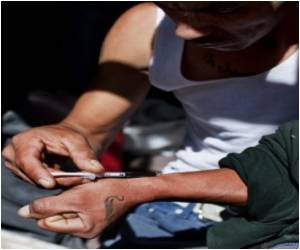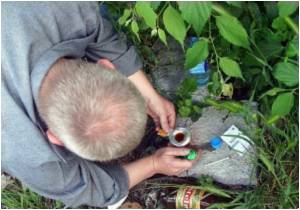
The Portland Hotel Society, which operates the clinic, and its backers brought a case to the Supreme Court of Canada this month seeking to stay the federal government's order to close its doors.
The facility was set up under a previous government in 2003 following a rash of overdoses in Vancouver, and is operated by the non-profit organization under a special exemption from federal drug trafficking and possession laws.
Since it opened, there have reportedly been nearly 2,400 overdoses at the clinic, but no fatalities.
And equally importantly, peer-reviewed studies showed it has helped reduce the incidence of diseases such as HIV and hepatitis spread by sharing needles in unsanitary conditions, as well as curbed open drug use.
But the clinic's special status expired in mid-2008, and critics have accused the facility of fostering addiction.
Advertisement
But the federal government appealed, and the high court's decision is expected as early as September.
Advertisement
They quickly shoot up, fearing an assault, arrest or that their drugs will be stolen. And they often leave behind dirty syringes after sharing them with several others.
The drug supervision facility frequented by thousands of clients aims to prevent overdoses, offers health services and refers addicts to detoxification facilities, say its proponents.
But Ottawa has suggested that InSite's nearly CAN$3 million annual budget -- funded by the British Columbia government -- would do more good if spent on expanding detoxification centers.
An estimated one-third of addicts in the Downtown Eastside are HIV positive.
Women are most at risk of contracting diseases such as HIV or hepatitis from intravenous drug use, often turning to prostitution for money to pay for the drugs.
InSite is the first line of defense, says nurse Sammy Mullally. The clinic offers HIV testing, counseling on the risks of drug use and access to basic health services.
Over the past eight years, an average of 600 people have come through its doors each day. Overdoses in the surrounding area have dropped 35 percent since it opened, according to a study in the Lancet medical journal.
"It's a healthcare center that allows people to inject safely, decreasing incidences of HIV and hepatitis C, and we have a detox facility upstairs, so people who come here are more likely to go into treatment," Mullally explained.
Canada's Conservative government has proposed seeking alternative solutions to the city's drug woes. But InSite's manager Darwin Fisher is skeptical.
"There's been an extraordinary amount of research done on the site all pointing to its positive effects," he told AFP.
"Doing more research to find alternative ways of dealing with addiction, I think, disguises the ideological opposition of the government" to the clinic.
Taking the government's appeal to the Supreme Court, federal lawyer Robert Frater argued recently the federal government has exclusive control over narcotics.
But proponents of the InSite clinic disagree, claiming its survival was a matter of public health, which falls under provincial jurisdiction.
Denying a sick person, such as an addict, access to healthcare effectively deprives them of "life and liberty," Joseph Arvay, a lawyer for the Portland Hotel Society, told the court.
He dismissed concerns that it "sends a message that it's okay to do drugs," saying the clinic actually exposes the "misery of addiction."
Source-AFP









